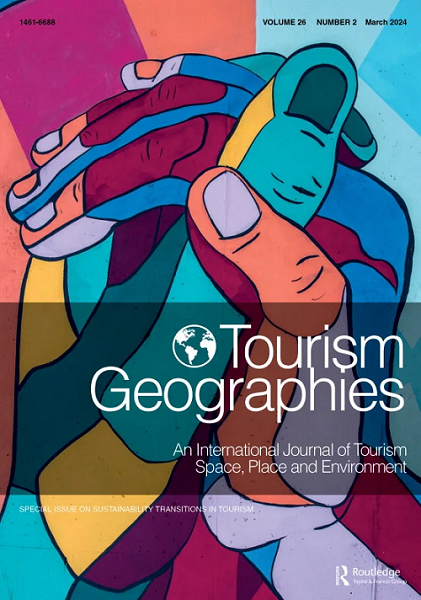Phygital time geography, or: what about technology in tourists’ space-time behaviour?
IF 4.1
3区 管理学
Q1 HOSPITALITY, LEISURE, SPORT & TOURISM
引用次数: 0
Abstract
The paper argues for the renewed relevance of time geography in tourism in light of the use of mobile technologies and ubiquitous connectivity. The paper proposes the concept of phygitality to unde...植物数字时间地理学,或:游客时空行为中的技术如何?
本文认为,鉴于移动技术和无处不在的连接的使用,时间地理学在旅游业中重新具有相关性。本文提出了 "时间地理"(phygitality)的概念,以理解...
本文章由计算机程序翻译,如有差异,请以英文原文为准。
求助全文
约1分钟内获得全文
求助全文
来源期刊

Tourism Geographies
HOSPITALITY, LEISURE, SPORT & TOURISM-
CiteScore
25.90
自引率
3.10%
发文量
19
期刊介绍:
Tourism Geographies is a peer-reviewed journal that focuses on exploring tourism and its related areas of recreation and leisure studies from a geographic perspective. It brings together academic and applied research as well as regional traditions from across the globe. The journal welcomes multidisciplinary approaches from fields such as geography, anthropology, landscape architecture, urban and regional planning, and environmental science and management. Tourism Geographies publishes various types of content including research articles, review articles, commentaries, literature reviews, and news related to affiliated organizations. All research articles and commentaries in the journal undergo a rigorous peer review process, including editor screening and double-anonymized evaluation conducted by two to three anonymous referees.
 求助内容:
求助内容: 应助结果提醒方式:
应助结果提醒方式:


